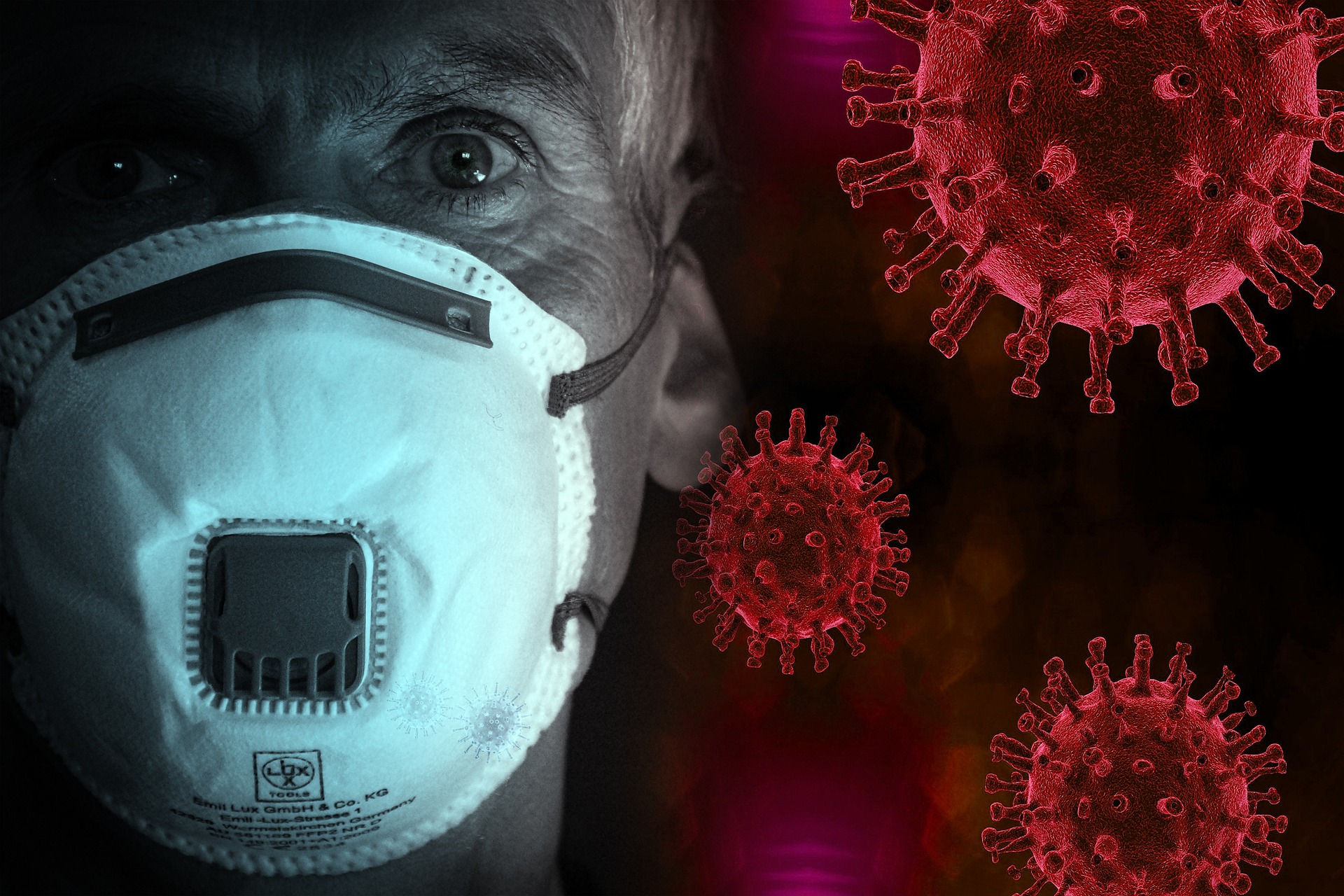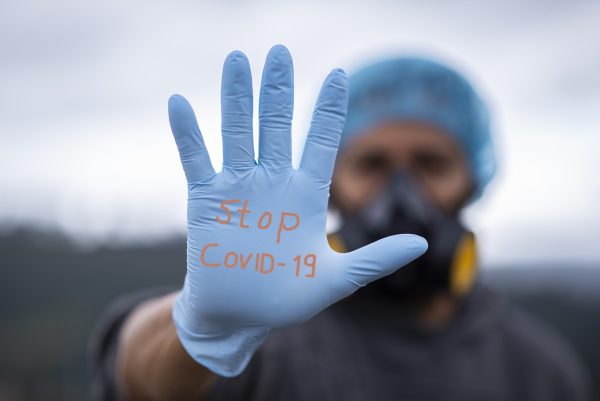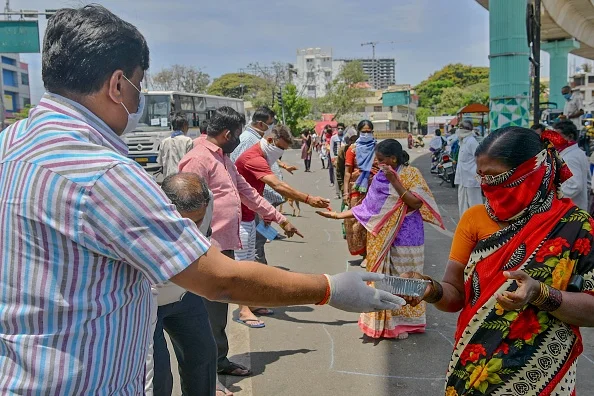Quick Links
reach Us
© Copyright 2025 by focusodisha.org || All Rights Reserved.
"Strengthening humanitarian interventions, civil society responses and advocacy through social media platforms and policy interventions to respond distress created by COVID-19"

SOCIAL COHESION AND COMMUNITY RESILIENCE
Communities are in the centre and would bear the brunt of the socio-economic impact of COVID19 and beyond.. They also hold the key to flatten the curve, respond to the pandemic and ensure longer-term recovery. They will need investment. At the same time, just when that social capital— the networks of relationships among people who live and work in a particular society, enabling that society to function effectively – is at a premium, the pandemic will place considerable strains on social cohesion, magnifying existing fault lines and creating new ones.
The urgency of responding to the current crisis needs to consolidate not sideline important ongoing processes of social dialogue and democratic engagement and gender equality in the past decades are not rolled back. It is important to base the socio-economic response to COVID-19 on well-tailored social dialogue and political engagement, grounded on fundamental human rights such as peaceful assembly, freedom of association and the right to collective bargaining, freedom of expression, press freedom, gender equality and the inclusion of women, amongst others.
Communities must be at the centre of all efforts to strengthen social cohesion. The impact of COVID-19 on the life of on vulnerable and marginalized populations was expected to be massive, especially in poor and densely populated areas. Around half a million migrant labourers from Odisha living in distress conditions, where living conditions were affecting the health of the poor dramatically, where people were unable to self-isolate and where their livelihoods depend on income from day-to-day work in the informal sector.
Localities in Puri and Ganjam districts of Odisha also faced compounded crises, such as a major COVID-19 surge on top of conflict and recurring natural disasters such as Amphan cyclones. The risk of social upheaval as the stresses of the COVID19 crisis were fully felt in these vulnerable communities was immense.
Focus Odisha Foundation had forged a network of NGOs to support societies in their endeavour to foster social cohesion during and after the pandemic. The network of NGOs had capacity to reach out to partners and actors and all stakeholders including community leaders.
The capacity to mitigate the socio-economic impact of COVID-19 would largely depend on local governments and tailored community-led solutions and responses that include women and youth.
The network of NGOs engagement with local development spans over community-based service delivery, participatory planning and local oversight of services as well improving the resilience of communities to withstand shocks, whether from economic downturns or climate related disasters. This will be delivered in part by adhering to existing guidance.
Inclusive social dialogue, advocacy, and community engagement
The Network had used its expertise and convening power to foster social dialogue and consensus about key measures related to the socio-economic response to COVID-19. At the community level such support will include: Rapid deployment of multidisciplinary expert teams to help open up dialogue spaces and facilitate participatory local responses; leveraging the NGOs networks and partnerships to bring together representatives of state institutions with a wide range of non-state actors such as civil society leaders, women and youth activists, representatives of migrants and diaspora groups, faith based organizations and religious leaders, employers’ organizations and business owners, trade unions, academia, think tanks and others to co-create recovery strategies; facilitating national and regional dialogues on the importance of press freedom and media independence for building social trust particularly in times of crisis; engaging culture entrepreneurs and practitioners to create spaces enabling communities to maintain social ties through artistic expressions; and supported Government agencies in the design of local responses that are gender and conflict-sensitive and strengthen social cohesion, trust and confidence.

A focus of the Network lies in empowering and connecting community-based organizations and networks into community-led response systems. A wide spectrum in well-tested rapid assessment tools and methodologies are available to generate community-data (dis-aggregated by age, gender, etc), and community-level mapping, capturing otherwise invisible acute vulnerabilities, as well as issues of acceptability and equity of assistance. This information can be integrated into broader data and monitoring platforms as a basis for advocacy, and more targeted responses. Other important services in this area are hotlines and instant messaging services run by local organizations. They offer online chat rooms for immediate support to survivors of violence, or to amplify messages around the COVID-19 response, including on the imperative of the equal sharing of the burden of care in the response and recovery of COVID-19.
How we have delivered the response
To ensure a development response of unprecedented speed, these principles will guided our actions:
a) Transaction costs must be minimized to the extent possible, by using existing platforms, capacities, institutions, and systems.
b) Flexibility must be enhanced, by drawing on programming and operational modalities usually reserved for high risk / conflict / humanitarian responses.
c) Risks must be taken and managed, by making full use of entity specific and joint risk management tools, and by speeding up the sharing of information on what work and what does not all at all levels.
d) Coherence and discipline must be everyone’s focus, by working with and through collective initiatives and frameworks, including when it comes to resource mobilization.
e) To ensure efficiency and effectiveness community dialogue, discussion and capacity building be ensured using IEC material, messages through WhatsApp in local languages and preparing youth and women to play a role of catalyst.
Distress Mapping & Response to COVID 19 Pandemic by Focus Odisha Foundation / COVID 19 Civil Society Initiative:
● During April 2020 immediately after 1st Lockdown our first task was to have an assessment of the situation in the ground across the Country
● A rapid assessment was done through tele-talks, Email contacts and scanning news sources
● We identified vulnerable groups, communities, and population
● And we found that though a cross section of society is going to be affected but it was Migrants who are going to be hit hard as reports of their distress and sufferings had started pouring in.
A need assessment was done on Migrant Population who were at the receiving end because of the ongoing Lock-down –their factories, plants, industries, worksites were closed even a large section of them were unable to pay house rents, pay for foods. As uncertainty looms large, despite repeated assurances from Government while Laborers were hell bent to return home, their employers also abandoned them. They were forced to return home. Seeing the unfolding but deepening crisis, our first attempt was to coordinate with civil society organizations across the State and the Country. With the help of some Volunteers, Social Activists, CSOs, VOs, CBOs, Media Persons, Advocates we had started an social action group COVID19- Civil Society Initiative in WhatsApp and an Emergency Response Group was formed to reach out the distressed people especially standard migrants. And through this initiative with well-coordinated and collective way we could reach out thousands of standard migrants in Kerala, Karnataka, Tamil Nadu, Andhra Pradesh, Telengana, Maharashtra, Gujarat, Delhi, Uttar Pradesh, West Bengal etc. We were also instrumental in sending back migrants of neighboring States like Chhatisgarh, Jharkhand and West Bengal from Odisha.Our representatives were in grounds in Ernakulum, Coimbatore, Tirupur, Chennai, Bengalure, Hyderabad, Surat, Pune, Mumbai, Delhi, Ranchi, Raipur, Raigarh and Kolkota helped us in ensuring proper ground coordination.
We are thankful to Dakhin Foundation, Bangalore, Chennai Citizen’s Group, Madras Utkal Association, Radio Ratnavani, Coimbatore, Activists of our parent Organisation Pravasi Sramika Surakshya Manch, Odisha-Surat-Mumbai an affiliated organisation of National Coalition on Migrant Labourers (NCML) and scores of Journalists & media friends for making it happen. Notable among the features of our work is support from District Administrations, Labour, Home Departments of different State Governments. Representatives of Civil Society Organizations’ and Individual Activists across the State in Odisha also played an important role to enable a supporting environment. We are also grateful to various district administrations, Labour Commissioner under Government of Odisha for extending a helping hand though primarily it was their responsibility.

These were migrants who were held by Police and local administration in Andhra Pradesh as they were passing through Srikakulam by walk, Cycle, Motor Cycle and Goods Vehicles after the Countrywide Lockdown. They were put inside a Collie (Kesaba Reddy Degree College) and in a Government facility were asked to quarantine for 3 weeks. Many of them had already passed /spent more time in Quarantine Centers. These were migrants from Odisha, West Bengal and Jharkhand. They were returning back home from Mangalore, Chennai, Visakhapatnam, Hyderabad, Bangalore and some other places in South India. After knowing their plight, we immediately intervened, spoke to concerned Collectors and district and State Administrations of both the States AP & Odisha and arranged their released. AP State Road Transport Buses brought them and dropped them in Berhampur and then with the help of local administration they were sent back home.
Hundreds of Tribal Migrants from Sundargarh & Sambalpur were released from a Construction Site in Mandya near Bangalore. They were working in a Construction Site under a Builder in Mandy -150 Kms from Bengalure. After lockdown in that area they were running out of Money and Food for weeks together. After knowing their case from a Social Worker in Bamra, Sambalpur, we communicated with our friends of Dakhin Foundation, Bengalure. They intervened immediately and with coordination of State Nodal Officer, Karnataka and Mandy district administration, these migrants brought into Bengalure in a special Bus, were provided foods, conducted their COVID-19 Test and finally arranged their journey back home through Sramika Special Train to Odisha. State Government vehicles ferried them to their home districts.
These Girls belonging to Puri, Jajpur, Deogarh and Bhadrak were working in a Food Processing Industry near Nashik. As lockdown and shutdown measures continued for months together to contain the spread of COVID-19, these girls from Odisha were asked to leave by the Factory management on their own arrangement. Finding no other alternatives, they contacted their family and relatives. After getting to know about their sufferings we contacted Labour Commissioners’ of Odisha and Maharashtra through Phone, WhatsApp and Tweets. A Team of Labour and Administrative Officials from Nashik reached out to the Girls and visited the factory, the following day. After hectic negations with management the girls were released and company paid their displacement allowance, Return Journey fees. They were brought in to Thane Railway Station by a special vehicle than sent back home through a Odisha bound Train. When they reached Bhubaneswar, were taken to their home districts by district administration and were put into quarantine in government facilities.
Surya Majhi,24 a girl from Baijapalli under Laida Gram Panchayat of Rengali Block in Sambalpur,Odisha was critically admitted in Osmania Hospital in Hyderabad but due to lack of money and support She was denied treatment and was stuck in a containment Zone in the city. Surya was working in Manjira, Shopping Mall near Kukutapalli. When we came across her suffering we draw attention of Sr Journalist in Hyderabad C. Narendra , he along with few Human Rights activists of Hyderabad brought to the notice of Hyderbad Police Commissioner and WCD Department of Telengana Government, on the late night WCD Department and Hyderabad Police took her to admit Osmania Hospital and in coordination Telengana Health Minister’s Office also intervened, she was treated well and support financial support poured in from different quarters after our twitter campaign, even Sambalpur District administration sent her financial assistance from Red cross fund. When we brought it to the notice of Odisha Health Minister Naba Kishore Das he immediately offered her family to apply for CM’s Relief Fund. Surya came back home and was admitted to VSS Medical College Hospital for further treatment. Harihar Nath, a Correspondent of Odia daily The Samaj and President of Rengali Press Club played a crucial Role in this case to help Surya Majhi.
We were instrumental in bringing in thousands of Odia Migrants from Kerala coordinating with district administration of Ernakulum, Labour Department of Kerala. These were the labourers who were working in various Garments, Textile, Plywood, and other Industries. A sizeable number of them also were working in Construction related activities. They are from almost all parts of Odisha. Even few of our friends were requested to help in translating plight of migrants (from Odia to Malayalam) to local administration.
Similarly, through our interventions hundreds of Migrants mostly Odia labourers were released and came back home through Sramika Special Trains from Coimbatore also we reached the distressed lot supporting them food and shelter in some places.
We were in constant touch with Odia Migrants in Surat, Gujarat. From the first lock-down period we were informed and were regularly updated on the movement of migrants as they had started off their journey back home, whenever required we brought to the notice of authorities in various places and States. From the very beginning we argued with district administration not to put migrants in quarantine in their home localities and it was followed. We highlighted the plights of migrants in different Newspapers and TV Channels.
To reach out Migrants we took help of CR Stations in different States and they ran special bulletins in both the Odia and local languages regarding Toll Free Numbers, Nodal Officers Contacts, Sramika Special Trains, COVID Guidelines etc. Radio Ratnavani in Coimbatore, Tamilnadu ran special broadcast and narrow-cast to reach out Odia Migrants in and around Coimbatore districts. This programme was done in collaboration with Focus Odisha Foundation.
Our WhatsApp groups COVID19-CIVIL SOCIETY INITIATIVE & MIGRATION WATCH INDIA played a crucial role in coordinating the migrant workers, civil society groups, social activists, media persons, government agencies and administrative officials besides. Members of the group were active in coordinating, reaching out, helping migrants in different places and alerting local authorities. With their help we helped thousands of migrants.
The ongoing efforts through Focused Odisha & COVID 19 Civil Society Initiatives & Migration Watch India is available in the web http://migrationwatchindia.in/:
To Create and manage digital platform to inform people on their rights and entitlements and build evidence in support of the issues.
To build evidence in terms of collecting case studies from the filed and make use in further advocacy with Government.
To generate public discourse and bring the issue in the center stage through mobilsing solidarity and facilitating discussion in webinar.
To analysis Existing Laws, Guidelines, Policy papers, Programmes, Packages, Guidelines etc. and bring out policy brief.
To open dialogue with Governments through department concerns etc.
This necessitate long term and continuous engagement with Government.
The collective working and mobilsing of large categories of people and Organisation will add strengthen to deal the risk and challenges.
In this endeavor the major focus would be on how to strengthen Government and Civil Society collaboration, so that the agenda and questions of migrant workers would be addressed with attention by the State and Union Governments.